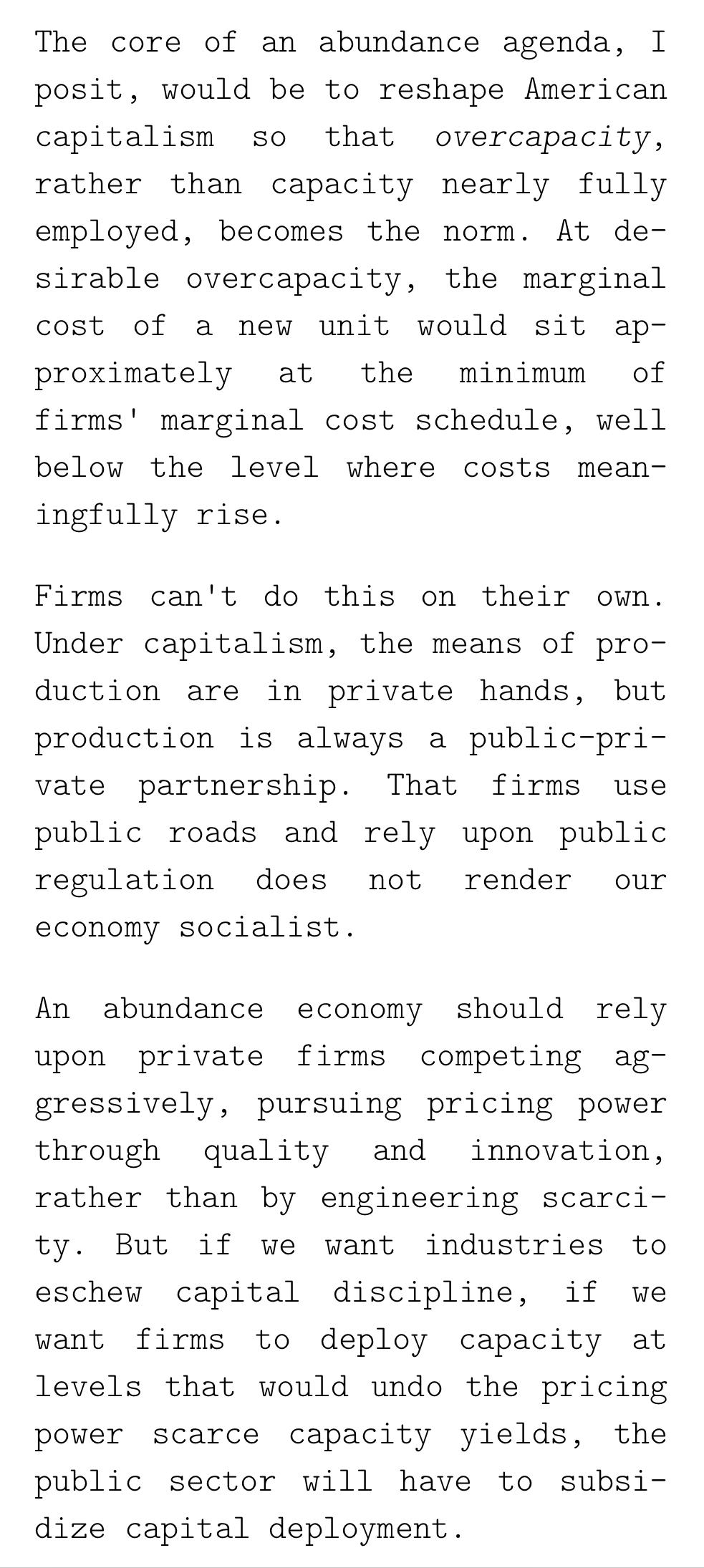@light @oliversampson I give it a fair hearing and reject it. Some of “fair” when discussing things to which I have no first hand access is necessarily deciding whom to trust. So, though I can’t personally refute every proposition offered by obsessive holocaust denialists doesn’t mean I have to accept his claims over those of others I find trustworthy. The “should have” claim I’d find very easy to reject.
@light @oliversampson Should we care about the values and interests of sinners? When you curdle a human being into a noun, you obscure the human, but even humans who have done hateful things — to some degree all of us — still count. That doesn’t mean we have to collectively agree. A murderer might argue we should not punish him because reasons. We might hear him out and punish him anyway. But we owe him, like everyone else, a genuine hearing. 1/
@light @oliversampson And, like all of us, he has values beyond his sin. His perspective on land use or taxation or food safety is not rendered worthless because of his sin. He owes what our justice system deems him to owe, but he remains a human being, not an object or a nullity. /fin
@admitsWrongIfProven good point!
i haven’t read “Abundance” yet, but here’s a bit i wrote when i knew it was coming. https://drafts.interfluidity.com/2024/09/17/abundance-is-overcapacity/index.html
 Text: The core of an abundance agenda, I posit, would be to reshape American capitalism so that overcapacity, rather than capacity nearly fully employed, becomes the norm. At desirable overcapacity, the marginal cost of a new unit would sit approximately at the minimum of firms' marginal cost schedule, well below the level where costs meaningfully rise. Firms can't do this on their own. Under capitalism, the means of production are in private hands, but production is always a public-private partnership. That firms use public roads and rely upon public regulation does not render our economy socialist. An abundance economy should rely upon private firms competing aggressively, pursuing pricing power through quality and innovation, rather than by engineering scarcity. But if we want industries to eschew capital discipline, if we want firms to deploy capacity at levels that would undo the pricing power scarce capacity yields, the public sector will have to subsidize capital deployment.
Text: The core of an abundance agenda, I posit, would be to reshape American capitalism so that overcapacity, rather than capacity nearly fully employed, becomes the norm. At desirable overcapacity, the marginal cost of a new unit would sit approximately at the minimum of firms' marginal cost schedule, well below the level where costs meaningfully rise. Firms can't do this on their own. Under capitalism, the means of production are in private hands, but production is always a public-private partnership. That firms use public roads and rely upon public regulation does not render our economy socialist. An abundance economy should rely upon private firms competing aggressively, pursuing pricing power through quality and innovation, rather than by engineering scarcity. But if we want industries to eschew capital discipline, if we want firms to deploy capacity at levels that would undo the pricing power scarce capacity yields, the public sector will have to subsidize capital deployment.
you only press “sleep” when it is time to wake up.
when the executive has discretion over who has “the right to have rights”, then no one has any rights at all.
@oliversampson (thanks!)
most of the time i like to think that i’m hysterical. then i read the news.
@curtosis right? i mean if it’s a trick, it’s a pretty vanilla trick!
@DocAtCDI my 2¢ is your 2¢ will save you.
the way you reduce Federal interest outlays is you retire debt with wealth taxes.
i really hate the conflation of globalism and neoliberalism. neoliberal globalism was a catastrophe. but other globalisms are possible, globalism per se is a mark of freedom and taking pleasure in the variety that springs from the humanity and dignity we share.
one thing i’d not have guessed is it’s the rich who’ve decided to burn it all down. recruiting the discontent and fanning the cynicism of the not so rich, sure. but the rich are in drivers’ seat of uprooting the foundations of their own extraordinary lives. great wealth turns people stupid.
this by @jbouie on the not merely unconstitutional but anti-constitutional nature of the Trump administration is excellent. https://www.nytimes.com/2025/03/19/opinion/trump-musk-constitutional-unconstitutional.html?unlocked_article_code=1.5E4.ES9E.iQJkDbyhmvus&smid=url-share
NOAA and FEMA “are being unlawfully defunded in a bid to justify privatization. Before Musk and other rentiers seize public assets, they’re deliberately breaking them to ‘prove’ the right-wing myth of public-sector ineptitude.” #KennyStancil https://prospect.org/environment/2025-03-19-doge-is-going-to-kill-a-lot-of-americans
do most American workers live “paycheck to paycheck”?
maybe. it depends what that means.
see #MattBruenig https://www.peoplespolicyproject.org/2025/03/19/how-many-people-live-paycheck-to-paycheck
my cat has obtained $44B valuation in sharp turnaround.
(i don’t have a cat.)
Enjoy a seamless shopping experience.
“The reason you should care about this is not that it could happen to you but that it is already happening to others. It is happening to people who, we claim, have rights just because we are human. It is happening to me, personally.” #MashaGessen https://www.nytimes.com/2025/03/17/opinion/trump-trans-denationalizing.html
“free speech means i am free to control the speech.”